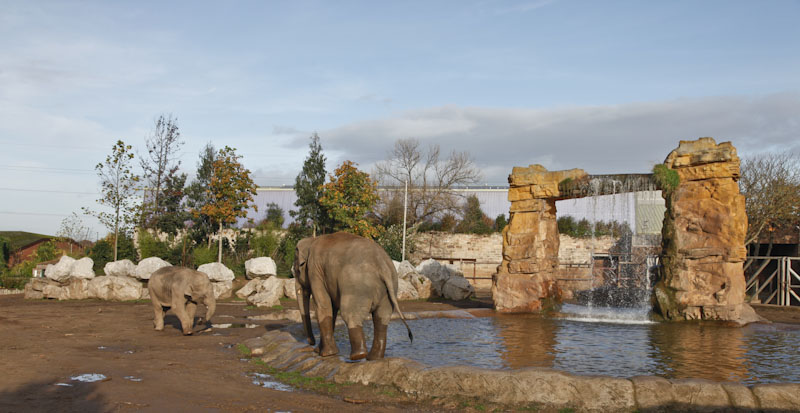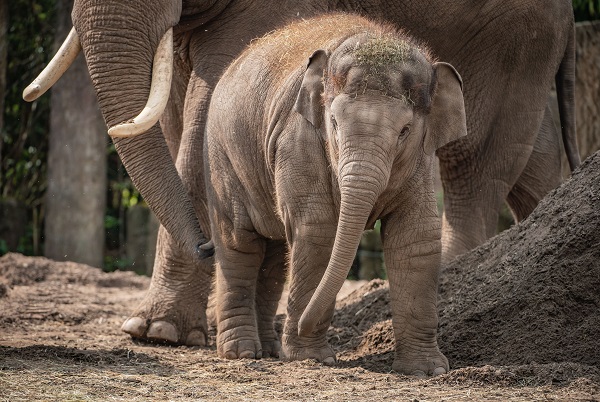Chester Zoo elephant house now fully open following virus scan ‘anomaly’

Chester Zoo’s indoor elephant habitat is now open as usual, following the brief periods of closure last weekend.
Last week vets spotted a small anomaly in one-year-old Anjan Hi Way’s regular EEHV health screenings.
The zoo’s specialist team have been closely monitoring Anjan over the past few days.
Keepers and veterinary teams had initially been giving Anjan immune boosting drugs, just as a precautionary measure, and will continue to monitor him as usual.
“Anjan continues to appear completely fit and well, and is spending time playing with half sister Indali, who survived the EEHV virus earlier this year.” A zoo spokesperson said.

[Indali Hi Way survived EEHV after ground breaking treatment]
EEHV is a major threat to the long-term survival of endangered Asian elephants.
Reports of wild elephant fatalities in India, Nepal, Myanmar and Thailand are on the rise.
It is known to have caused deaths in nine countries across their native range, as well as in zoo breeding programmes worldwide.
It is thought that most Asian elephants carry EEHV, but only young calves tend to develop outward symptoms, typically around weaning age, when they do, it is usually fatal.
Huge progress has been made in recent years in the fight to find an answer to the global crisis.
A team from Chester Zoo backed by more than £240,000 in public donations – have been at the forefront of attempts to find a solution.
Their ultimate goal is to develop an effective vaccine that could be rolled out worldwide.
Two elephant calves died in 2018 after falling ill with the virus at Chester Zoo.
Three-year-old Nandita Hi Way and 18-month-old Aayu Hi Way tested positive for EEHV and underwent blood transfusions and were given anti-viral drugs but tragically died in October 2018.
Remarkably two-year-old Indali Hi Way– made a full recovery earlier this year from the EEHV helped by ground-breaking developments in early detection and treatment methods.









